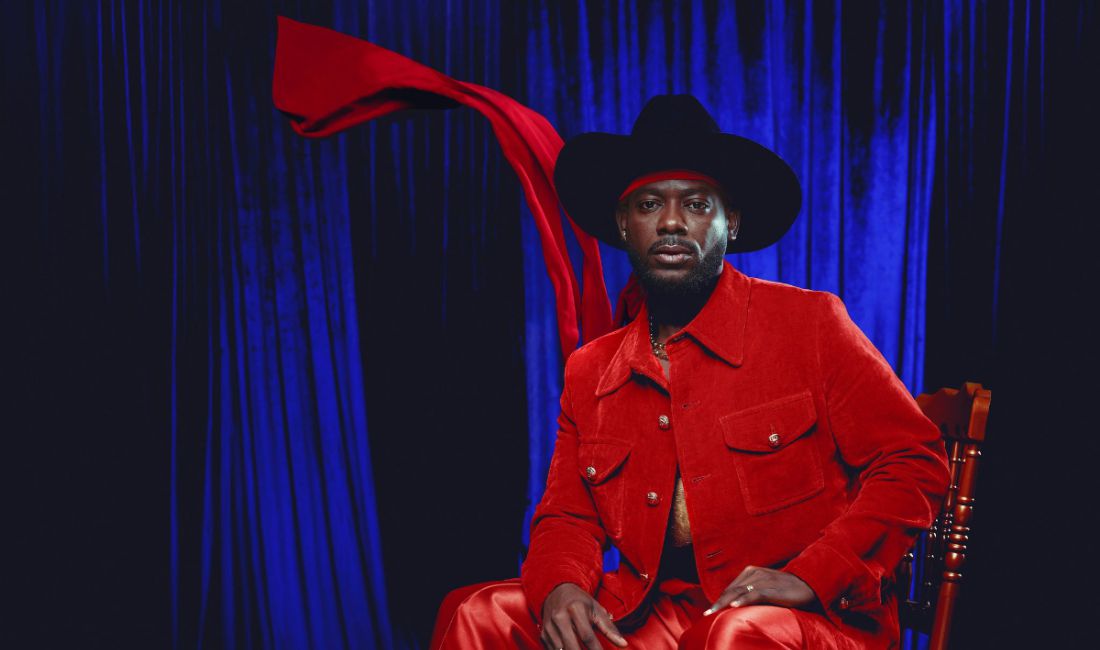When Adekunle Gold announced that his sixth album would be called ‘Fuji’, my initial reaction was that of both excitement and a little skepticism. Although the broader title is “Finding Uncharted Journey Inside,” the use of ‘Fuji’ rather than “F.U.J.I” suggests that he has married his thoughts with the popular Yoruba genre of music.
I gathered my thoughts in an article where I questioned whether the album will be Fuji in essence or in title.
When it was finally released on October 3, 2025, I approached the album with a curiosity to discover how the ever-evolving star would interpret Fuji music through songs I expected to still retain ample mainstream elements.
Like Fuji Music’s protagonist, I expected Adekunle Gold to bring his peculiarities to the genre or at least take from the genre and uniquely interpret it, especially since I never expected that he would entirely abandon the sensibilities of pop music for traditional Fuji production.
RECOMMENDED: Adekunle Gold’s Fuji Block Party Was So Good I Stayed Out Till 3AM
It’s this ability to take from different aspects of Fuji and interpret them through mainstream lenses that makes Adekunle Gold’s Fuji an accomplished body of work.
When you think of Fuji, you hear the gan gan, gbedu drums, and the sakara. You think of praise singing and constant chest-thumping lyrics. You recollect the stinging jabs and famous subliminals that have defined famous feuds. You think about parties, street carnivals, and traditional festivals. Adekunle Gold takes from all of these defining aspects and interprets them through pop lenses.
In the opening track, he’s flamboyant and boastful. He calls himself the “Big Fish” who works for his money rather than relying on handouts from the political Godfather. The production is modern and embraces Fuji stylism in its cadences.
The Fuji cadence is significantly more obvious on ‘Don Corleone,’ where Adekunle Gold draws from the famous character in Mario Puzo’s novel The Godfather. His delivery, flow, and drum patterns mirror Fuji music, while his superstar wife Simi adds flair to the song with backup vocals that hail him as a man who gets the job done in every room.
The gan gan drums and Fuji cadences rise to the surface on Niphkeys-produced ‘Bobo’ featuring Lojay and Shoday, who join him in flaunting the good life wealth affords.
A Godfather in his own right, Adekunle Gold shows he’s a man of means by splurging on two of the most expensive samples in the recent history of Afrobeats. He samples Rihanna’s mega-hit ‘B!tch Better Have My Money’ on a gbedu-styled Niphkeys production of ‘Coco Money.’ His heartfelt romantic declarations are richly backed by a fine chorus that samples Grover Washington and Bill Withers’ ‘Just The Two Of Us.’
Adekunle Gold’s exploration of Yoruba indigenous music takes him to Alujo territory, where he links up with Yinka Ayefele for the party starter ‘Many People,’ which borrows from one of the Tungba master’s ‘Mi O Mo J’orin Lo’ off his classic album ‘Aspiration’.
Even when he basks in the Popstar limelight and demands to be loved honestly, on TMXO-produced ‘Love Is An Action,’ the drum arrangement clearly carries a Fuji pattern, and his tonal inflections of his melodies carry cultural subtexts that pave the way for American star 6lack to fit in. This subtle Fuji elements are present all through the album and even in the cover art where he recreates covers of the genre’s pioneer Alhaji Sikiru Ayinde Barrister.
His Yoruba identity shines on the pop record ‘Attack,’ where he combines with rising star Mavo and alternative music icon Santi for a genre-bending chest thumper. When he declares his desire to live life on his terms on ‘Oba,’ it’s on a production that embraces Yoruba folk music.
Adekunle Gold is a family man, and he celebrates his wife and daughter, who are his biggest wins, on an album where he basks in personal victory. On ‘My Love Is The Same,’ he takes a break from flexing on his opps like the typical Fuji star to pen a love letter for his daughter.
When he teams up with Afrobeats icon Davido to discuss the inconveniences faced by successful married superstars on ‘Only God Can Save Me,’ whatever notion of infidelity the Afropop record suggests is quickly put to bed with the folk-leaning The Kazez-produced ‘Lailo,’ where he pledges his undying love to his wife.
>

